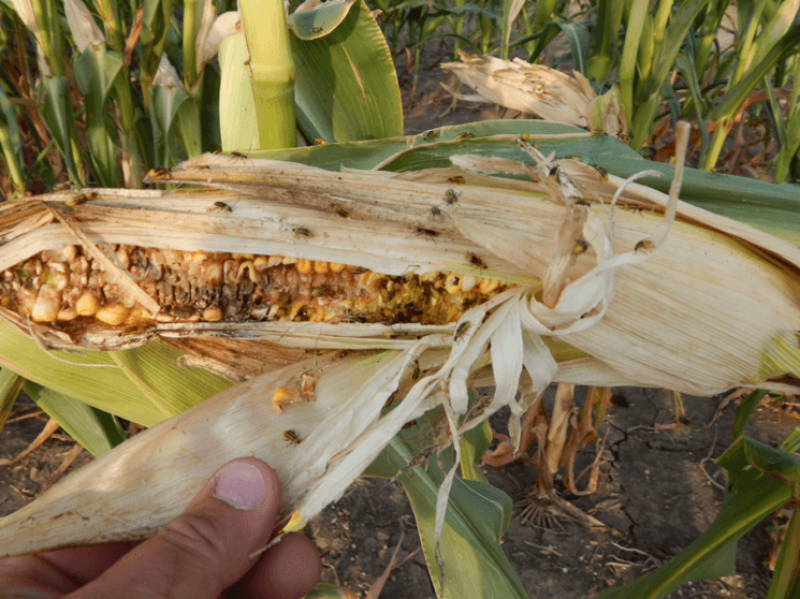In August 2019, a research group …. announced the development of a rapid and reliable approach to creating a “vaccine” for plants. It can be sprayed on like a pesticide, or even injected like an animal vaccine.
It works using a system called RNA interference, or RNAi. RNAi can be thought of as a kind of immune system: the cell recognizes double-stranded RNA …. that’s not its own, like that from a virus trying to take over a cell, and chops that RNA into small fragments. Then, the cell uses those fragments to identify and stop further pathogen activity.
…
In 2017 the U.S. Environmental Protection Agency (EPA) approved a genetically engineered maize specifically engineered against corn rootworm.
However, even if GMOs are recognized as safe, in some countries there are concerns about their use. Countries that have banned GMOs seek non-transgenic, sustainable alternatives for pest management strategies that can reduce pesticides use.
By combining the spray-on easy-application typical of chemical pesticides with the precision offered by genetic engineering, plant “vaccines” based on RNAi represent sustainable alternative in plant protection where GMOs use is forbidden by policy regulations.































